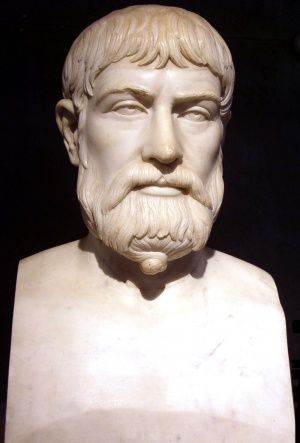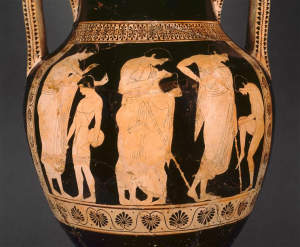(Boylove Documentary Sourcebook) - Pederastic Desire in a Poem by Pindar

From Homosexuality in Greece and Rome: A Sourcebook of Basic Documents, edited by Thomas K. Hubbard (Berkeley: University of California Press, 2003). Footnote omitted.
This short skolion (a drinking song for performance at symposia) praises the beauty of the boy Theoxenus. Some critics have supposed it to be Pindar’s personal declaration of love, but it was more likely commissioned by the boy’s lover and the first-person voice is meant to express the erotic attraction of any man who likes boys. Pindar’s lyric poems are built out of metrically equivalent stanzas (“strophe” and “antistrophe”) followed by a stanza in a different meter (the “epode”).
[strophe] One must pluck loves, my heart, in due season and at the proper age.
Ah! But any man who catches with his glance
The bright rays flashing from Theoxenus’ eyes
And is not tossed on the waves of desire,
Has a black heart of adamant or iron 5
[antistrophe] Forged in a cold flame, and dishonored by Aphrodite of the arching brow
Either toils compulsively for money
Or, as a slave, is towed down a path utterly cold
By a woman’s boldness.
But I, by the will of the Love Goddess, melt 10
[epode] Like the wax of holy bees stung by the sun’s heat,
Whenever I look upon the fresh-limbed youth of boys.
And surely even on the isle of Tenedos
Seduction and Grace dwell
In the son of Hagesilas. 15

See also
- Adult friend (dictionary)
- Age of attraction (dictionary)
- Athenian pederasty
- Boylove
- Cretan pederasty
- Ephebophilia
- Eromenos
- Greek love
- Historical boylove relationships in ancient Greece
- Loved boy (dictionary)
- Minor-attracted person (dictionary)
- Pedophilia
- Philosophy of ancient Greek pederasty
- Spartan pederasty
- Theban pederasty
- Young friend (dictionary)